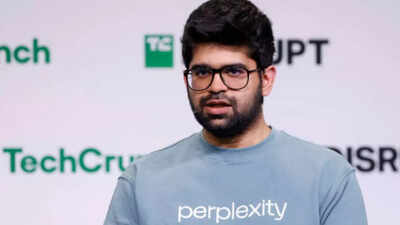ARTICLE AD BOX

Aravind Srinivas, co-founder and Desi CEO of the AI startup Perplexity, has identified the most critical quality for leading a company. In a recent interview, Srinivas said that the ability to learn and “make peace with some problems” and “pick the number one thing” to tackle issues is key to survival and growth in the fast-paced AI sector.Srinivas recently shared vital lessons from his time running Perplexity, including his strategies for product development and engaging with investors at the Dean's Speaker Series at UC Berkeley Haas.
Prioritisation is the key: Srinivas
Srinivas emphasised that accepting unresolved issues as part of the entrepreneurial journey is essential. The biggest skill a CEO or founder needs, he stressed, is clear prioritisation.“Anytime you ask someone, 'What are you doing, what is the one problem you're looking at, or, 'What are your priorities for this week?', they will have a bucket list of like five to 10 things to say,” Srinivas said.“And then, I asked them, 'OK, what is the number one thing?' And they can't say it... And I think that is the number one skill you need as a CEO or a founder is anytime you need to pick the number one thing," Srinivas added.
The 80% solution for product growth
This mindset of embracing imperfection permeates Perplexity's approach to product development, which aims to launch solutions that are about 80% finished. This strategy allows the firm to adapt quickly to the rapidly evolving AI landscape.
Srinivas explained that a product cannot be launched at 60% completion, as user retention would plummet. Instead, a sweet spot must be found:“You have to build products that 80% work. It cannot be 60% because no one's going to use it... You have to build 80% perfect products where there is a long tail of 20% that kind of doesn't work, but that 80% is enough for users to get excited about it,” he explained.He concluded that this flexible strategy is the path to winning the market, allowing the company to continuously iterate: "Six months from now, that 80/20 goes to 90/10, and 12 months from now, it goes to 95/5. And that's how you win the market one or two years from now."

 3 hours ago
5
3 hours ago
5









 English (US) ·
English (US) ·